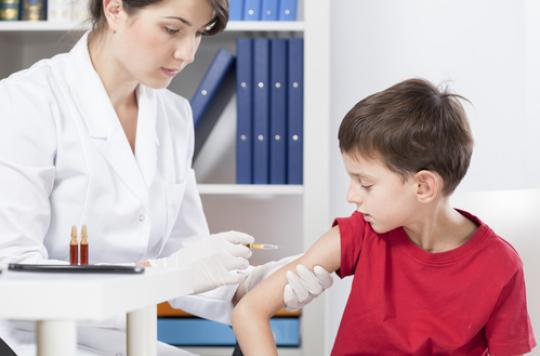If 40% of boys were vaccinated against the papillomavirus, life expectancy would increase by more than five years, according to a study.

Vaccinating boys against the papillomavirus (HPV) would lead to considerable gains in life expectancy, according to a study presented to Congress last week EUROGIN, in Salzburg, and conducted by a Dutch team from the Amsterdam University Medical Center.
According to the team behind this work, led by Venetia Qendri, if vaccination were extended to boys with 40% vaccination coverage in addition to the current 60% coverage among girls in the Netherlands, the life expectancy would increase by more than five years.
Immunity
To assess the health benefits of widespread HPV vaccination, the authors used modeling techniques. They took into account all cancers associated with the papillomavirus in men and women, to then calculate the immunity effect of these groups.
Their hypothesis is based on a vaccine coverage of 40% and a vaccine efficacy of 98%, with lifelong protection against diseases linked to HPV 16 and 18.
According to this modeling, this additional vaccination would be associated with 5.2 additional years of life gained per thousand girls and 5.8 years per thousand boys. The results are the same as if we increased vaccination coverage in girls only, from 60 to 80%.
The authors specify that protection against cervical pathologies is responsible for 73% of the gain in additional years of life, and the prevention of oropharyngeal cancers for 67% of the gain in boys.
Cost-effective
According to the authors, vaccinating 40% of boys in addition to 60% of girls would therefore be cost-effective, “even at a total cost of vaccination of 200 to 300 euros per boy vaccinated”, they specified.
Most developed countries have adopted a national HPV vaccination program for young girls, but vaccination coverage is not optimal. If in the Netherlands, it stagnates at 60%, in France, it is less than 20%.
.
















